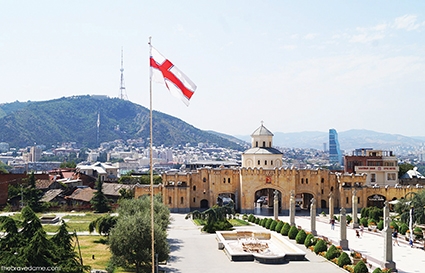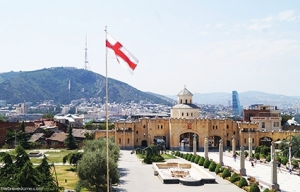Political Hatred in Georgia
Love is the basis for human life – this is one of the recent utterances by the spiritual leader of the Georgian Orthodox Church – simple and true! Love has numerous identified definitions throughout the history of philosophy and literature, and there will be many more to come in the future too; but I wish we had a sharper ear for those sacred precepts that are heard every so often from those whose words sound so ordinary but, paradoxically, are very much worth listening too.
The quoted phrase reminds me of the judgments I happen to have come across in books and articles by contemporary political authors, mostly, the political philosophers who are often alluding to the interrelation between hatred and political rivalry.
There is probably no nation in the world whose political situation does not leave much to be desired. This would be true about Georgia too, where the overriding definition of the political style is a sense of hatred, but it seems we are not alone; hatred in politics prevails everywhere, yet this should not be a consolation for Georgians. I simply wonder if any active politician in this country has heard and imbibed the Patriarch’s phrase about love.
It is a reality of a technically sophisticated world that the governors create policy right in front of the eyes of the people, unless something decidedly covert is in the pipeline. So we are always in the midst of current political matters. We have a fair idea of what is happening generally, and what our politicians want to make of ordinary Georgian lives. We see that politics has divided this society radically and hopelessly, the division based on mutual aversion – biological, organic, unbridled – and the seeds of that aversion are relentlessly sowed by politicians. The naming of them would be to no avail – they are all much of a muchness. Each political party is firmly convinced that all the evil is nested on the side of the opposition, whereas all good things are nursed and administered on their soil; opposed parties do not admit the possibility that something good might be happening in the nemesis’s camp too; they openly accuse each other of corrupt wrongdoings against our people, using the most vicious vocabulary, which is directed to their opposition. This is simply cruel and vindictive; even their humor is full of brutal aggression and violent sarcasm; they ceaselessly defy each other’s idealogies, even the best ones, qualifying them as dangerous. They condemn each other’s projects, even if they are undoubtedly beneficial for the country. Their beloved style is to invent some horrible catchphrase to characterize each other’s behavior in the most brutal and malicious manner. Their preffered subject of mutual incrimination is either the alleged built-up power or a so-called amassed fortune, making all kinds of malevolent attempts to undermine each other’s standing in the eyes of the public. Their primary focus is not the wellbeing of their people, but the opponent’s next play.
These are the attitudes, motivated not by the needs of the people, but by negative, hateful, angry and spiteful political rivalry, which is hugely detrimental to our people’s present and future.
Incredibly, the reality is that these nasty, inhuman attitudes by such selfsame politicians is cold-bloodedly disputed as if nothing corrupt is happening to the Georgian people. The fact is that this is the political state of affairs which demands that we all act accordingly, and pick a side. Yet the most optimal model of behavior in this particular political environment is to perhaps stay indifferent.
Is this model of social-political behavior justified? No, it is not because this is all reflected in our public life so that the members of this society are becoming cynical about everything that takes place around them, to the extent that the political culture of intolerance towards any idea that differs from our own thoughts becomes incurable. There is something atrociously unruly taking place in our political climate. The impression is that the universally accepted ideologies and principles, fall victim to our nonchalance, if not ignorance. If we want our political culture to be effective, in the most international meaning of the word, then we have to admit that “decent public culture cannot survive and flourish without its cultivation in some suitable form” – as one outstanding American political writer has emphasized in a recent publication. If we cannot use mutual respect and tolerance in politics, let us at least say no to a mean, heartless and furious style in the political dialogue that seems to inevitably be present at all times.
Nugzar B. Ruhadze












